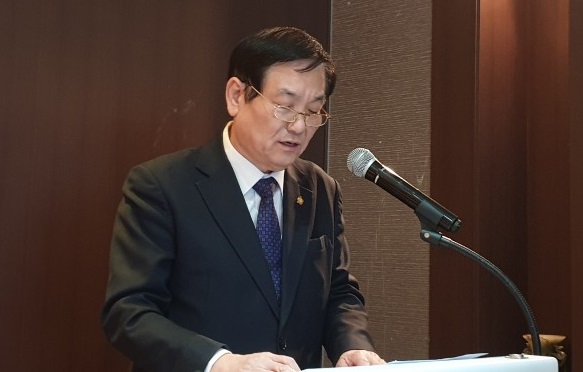The Korean Academy of Medical Sciences said it has worked out stricter guidelines for listing an adolescent’s name as an author of a medical research paper.
The toughened criteria came after the scandal over the suspicious academic career of the daughter of former Justice Minister Cho Kuk. Cho’s daughter was listed as a lead author of a pathology paper after she worked as a high school intern for two weeks under a professor at Dankook University.
The new guidelines state that adolescents participating in medical research and thesis publication must write research notes. The guidelines recommend authorship only when the author meets international standards.

The academy announced the “Ethics and Compliance Recommendations for Youth’s Participation in Medical Research and Publication” at a news conference on Tuesday. KAMS’ task force, led by Bae Sang-cheol, vice president of the academic and insurance affairs at KAMS, made the recommendations.
“Although we recommend medical research by adolescents, we should apply the general principles of research and publication ethics to them in the same way as we do to general researchers,” Bae said.
Based on the recommendations by the International Committee of Medical Journal Editors (ICMJE), the new guidelines stated that all medical research participants should write a study note detailing the research process and performance.
According to the guidelines, research on human subjects must protect the safety and personal information of the subjects and get them to be reviewed by the institutional review board in advance.
To be listed as an author, a person should meet all the four criterion set up by ICMJE: The person contributed significantly to research planning, data collection, and analysis; the person wrote a draft paper or critically revised it; the person agreed on the entire content of the study; and the person agreed on the joint responsibility for the whole research content.
Participants who do not meet this criterion should be cited as contributors, the guidelines said.
Contributing to English translation significantly, as Cho Kuk’s daughter Cho Min did, will not make the participant recorded as a lead author but a contributor.
The recommendations also said if the author's organization is different from the research institution, the institution that conducted the research should be marked first, and the author’s organization should be marked separately.
KAMS President Chang Sung-goo said, “Adolescents’ research participation and assistance overseas can be regarded only as an experience. We don’t expect great research results from them and give them a reputation as authors.”
In Korea, authorship of a journal helps get an advantage in college admission, which leads to an endless problem of unfair authorships, he said.
“The illegal acts of children of professors have become a social issue, and the public lost trust (in medical research ethics),” he added.
Chang emphasized that such illegal acts should not happen again as they go against social justice.
“The Journal of Korean Medical Science will thoroughly follow the new guidelines. I hope that other medical journals published by 186 societies could abide by these rules, too,” he said.

